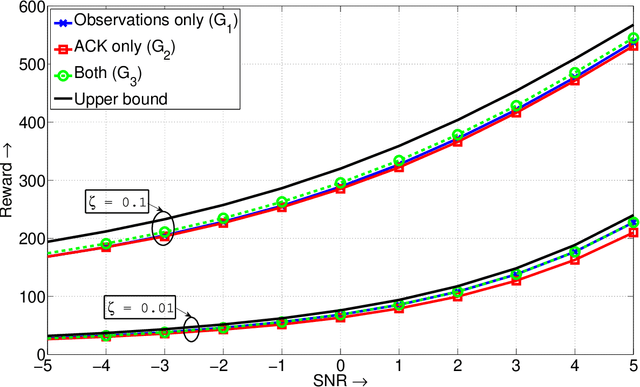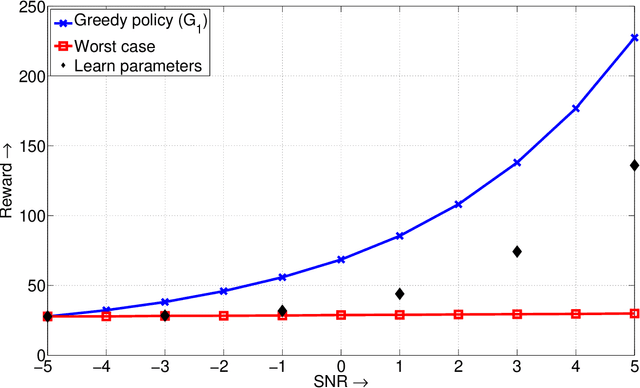Algorithms for Dynamic Spectrum Access with Learning for Cognitive Radio
Paper and Code
Feb 06, 2010

We study the problem of dynamic spectrum sensing and access in cognitive radio systems as a partially observed Markov decision process (POMDP). A group of cognitive users cooperatively tries to exploit vacancies in primary (licensed) channels whose occupancies follow a Markovian evolution. We first consider the scenario where the cognitive users have perfect knowledge of the distribution of the signals they receive from the primary users. For this problem, we obtain a greedy channel selection and access policy that maximizes the instantaneous reward, while satisfying a constraint on the probability of interfering with licensed transmissions. We also derive an analytical universal upper bound on the performance of the optimal policy. Through simulation, we show that our scheme achieves good performance relative to the upper bound and improved performance relative to an existing scheme. We then consider the more practical scenario where the exact distribution of the signal from the primary is unknown. We assume a parametric model for the distribution and develop an algorithm that can learn the true distribution, still guaranteeing the constraint on the interference probability. We show that this algorithm outperforms the naive design that assumes a worst case value for the parameter. We also provide a proof for the convergence of the learning algorithm.
 Add to Chrome
Add to Chrome Add to Firefox
Add to Firefox Add to Edge
Add to Edge